
Colaba: The Beating Heart of Mumbai
Welcome to Colaba, the vibrant and bustling neighborhood that epitomizes the spirit of Mumbai. Known for its colonial-era architecture, historic landmarks, and dynamic street life, Colaba offers a unique blend of the old and the new, making it a must-visit destination for tourists. Wander down Colaba Causeway, a shopping paradise where you can find everything from intricate jewelry to trendy clothing. The street is also lined with delightful cafes and restaurants, offering a range of cuisines that cater to every palate. Don't miss the opportunity to savor some local street food; the spicy Vada Pav and the sweet Jalebi are absolute must-tries. A short walk from the Causeway brings you to the iconic Gateway of India, a majestic arch that stands as a testament to the city's rich history. From here, you can catch a ferry to the Elephanta Caves, a UNESCO World Heritage Site that showcases ancient rock-cut temples. Colaba is also home to the grand Taj Mahal Palace Hotel, a symbol of luxury and elegance. Even if you're not staying there, a visit to its opulent interiors and a meal at one of its fine dining restaurants can be an unforgettable experience. Art enthusiasts will find solace in the many galleries that dot the area, including the renowned Jehangir Art Gallery. For a dose of history, the Chhatrapati Shivaji Maharaj Vastu Sangrahalaya museum offers an impressive collection of artifacts and exhibits. In the evenings, Colaba comes alive with vibrant nightlife options, ranging from chic rooftop bars to cozy pubs. Whether you're looking to dance the night away or enjoy a quiet drink, Colaba has something to offer for everyone.
Local tips in Colaba
- Visit early in the morning to avoid crowds at popular spots like the Gateway of India.
- Wear comfortable shoes as you'll be doing a lot of walking.
- Bargain at the street markets for the best deals.
- Carry cash as many small vendors do not accept credit cards.
- Stay hydrated and carry a bottle of water, especially during the hot months.
Colaba: The Beating Heart of Mumbai
Welcome to Colaba, the vibrant and bustling neighborhood that epitomizes the spirit of Mumbai. Known for its colonial-era architecture, historic landmarks, and dynamic street life, Colaba offers a unique blend of the old and the new, making it a must-visit destination for tourists. Wander down Colaba Causeway, a shopping paradise where you can find everything from intricate jewelry to trendy clothing. The street is also lined with delightful cafes and restaurants, offering a range of cuisines that cater to every palate. Don't miss the opportunity to savor some local street food; the spicy Vada Pav and the sweet Jalebi are absolute must-tries. A short walk from the Causeway brings you to the iconic Gateway of India, a majestic arch that stands as a testament to the city's rich history. From here, you can catch a ferry to the Elephanta Caves, a UNESCO World Heritage Site that showcases ancient rock-cut temples. Colaba is also home to the grand Taj Mahal Palace Hotel, a symbol of luxury and elegance. Even if you're not staying there, a visit to its opulent interiors and a meal at one of its fine dining restaurants can be an unforgettable experience. Art enthusiasts will find solace in the many galleries that dot the area, including the renowned Jehangir Art Gallery. For a dose of history, the Chhatrapati Shivaji Maharaj Vastu Sangrahalaya museum offers an impressive collection of artifacts and exhibits. In the evenings, Colaba comes alive with vibrant nightlife options, ranging from chic rooftop bars to cozy pubs. Whether you're looking to dance the night away or enjoy a quiet drink, Colaba has something to offer for everyone.
Iconic landmarks you can’t miss
Gateway Of India Mumbai
Explore the Gateway of India, Mumbai's iconic historical landmark that offers stunning architecture, rich history, and vibrant local culture along the waterfront.
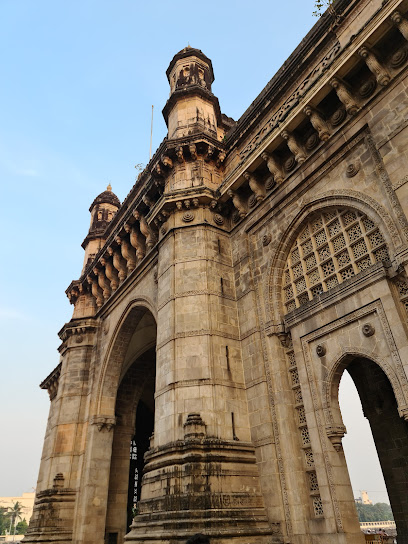
Colaba Market
Discover the vibrant Colaba Market in Mumbai, a bustling hub of fresh produce, local crafts, and mouthwatering street food, perfect for every traveler.
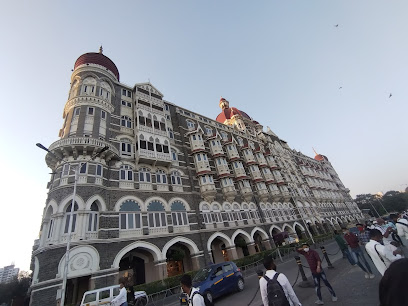
Colaba Causeway Market
Discover the eclectic charm of Colaba Causeway Market in Mumbai, where shopping meets local culture and culinary delights await.
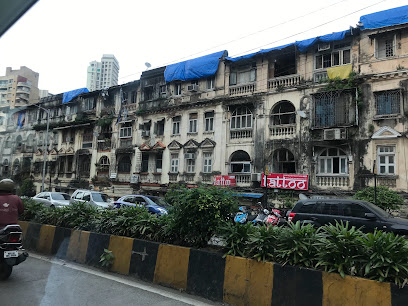
Colaba Woods Garden
Experience tranquility and beauty at Colaba Woods Garden, Mumbai's serene park perfect for relaxation, picnics, and leisurely strolls amidst lush greenery.
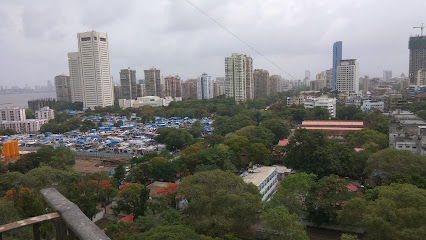
Mumbai Port Trust
Discover the picturesque Mumbai Port Trust, where nature meets history along the stunning Arabian Sea coastline.
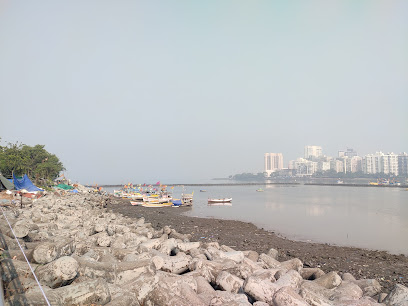
Colaba
Discover Colaba's rich maritime culture, vibrant street markets, and iconic landmarks in the heart of Mumbai's bustling waterfront.
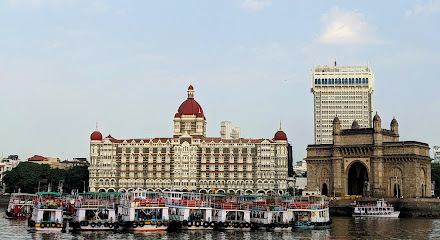
भारत का प्रवेश द्वार
Discover the historical significance and striking beauty of the Gateway of India, a symbol of Mumbai's rich cultural heritage and architectural splendor.
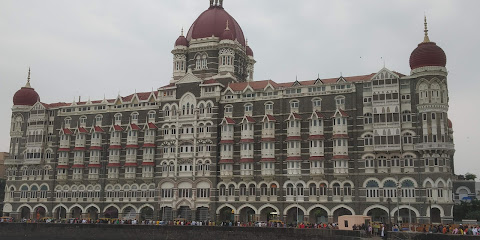
Geeta Nagar Sea View
Experience the serene beauty of Geeta Nagar Sea View in Colaba, a perfect tranquil retreat amidst the vibrant city of Mumbai.
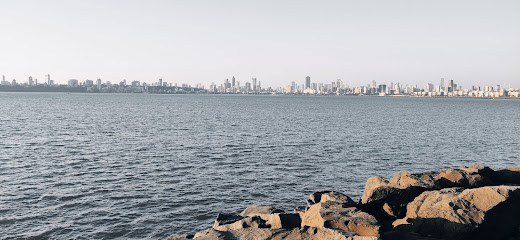
Harbor point
Explore the stunning Harbor Point in Colaba, Mumbai, where the sea meets the city and unforgettable memories await.
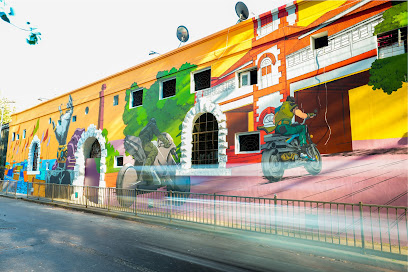
Colaba old Lighthouse
Explore the historical charm of Colaba Old Lighthouse, a stunning landmark offering breathtaking views and a glimpse into Mumbai's maritime history.

Unmissable attractions to see
Gateway Of India Mumbai
Discover the historic and architectural beauty of the Gateway of India, a key attraction in Mumbai that reflects the city's rich heritage.
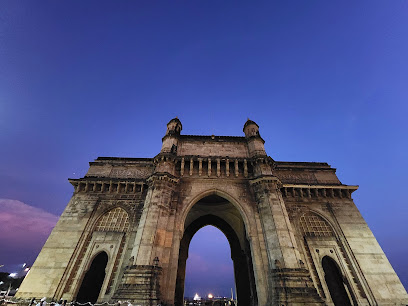
Marine Drive
Discover the enchanting beauty of Marine Drive, Mumbai's iconic promenade, perfect for sunset views and local flavors.
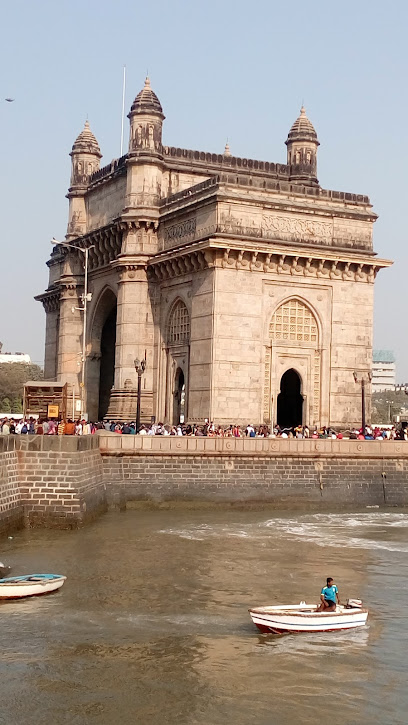
Chhatrapati Shivaji Maharaj Vastu Sangrahalaya
Discover India's rich heritage at Chhatrapati Shivaji Maharaj Vastu Sangrahalaya, a cultural gem in Mumbai featuring art, history, and stunning architecture.

Flora Fountain
Explore the captivating Flora Fountain in Mumbai, a historical landmark surrounded by vibrant streets and rich cultural experiences.
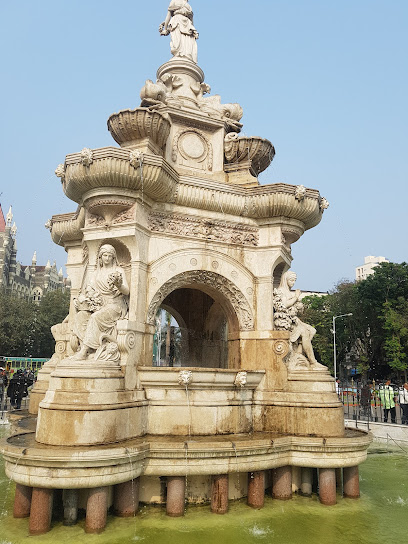
Jehangir Art Gallery
Immerse yourself in Mumbai's vibrant art scene at Jehangir Art Gallery, showcasing contemporary and traditional masterpieces by renowned artists.
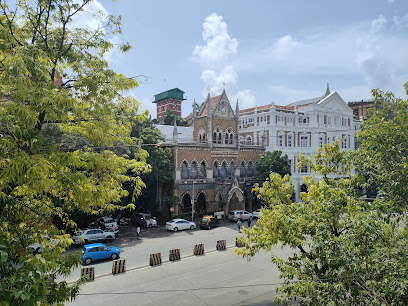
Rajabai Clock Tower
Discover the Rajabai Clock Tower, a stunning fusion of Gothic architecture and rich history nestled in the heart of Mumbai.
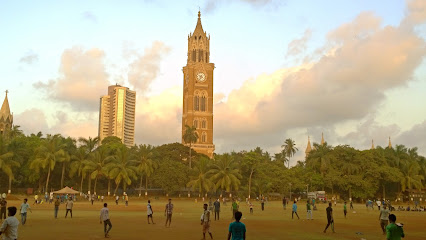
Chhatrapati Shivaji Maharaj Statue
Explore the iconic Chhatrapati Shivaji Maharaj Statue in Mumbai, a majestic tribute to the Maratha king and a symbol of India's rich heritage.
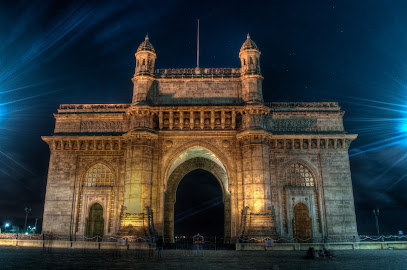
Bharat Point Sea Front
Experience the breathtaking beauty of Bharat Point Sea Front in Colaba, Mumbai - a serene escape with stunning Arabian Sea views.
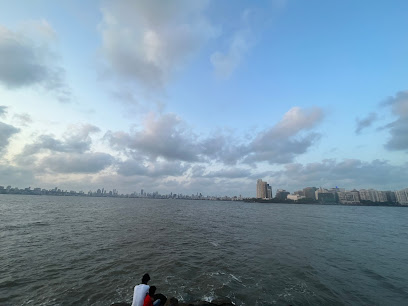
Oriental Art Museum
Explore the rich heritage of Eastern art at Mumbai's Oriental Art Museum, where history and culture come alive through captivating artifacts.
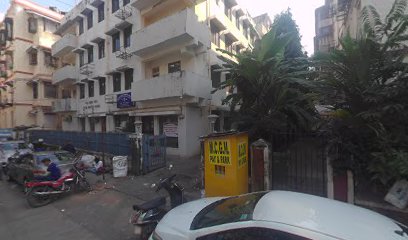
TIFR sea shore walkway
Explore the TIFR Sea Shore Walkway in Mumbai for stunning coastal views and a peaceful retreat from the city's hustle and bustle.
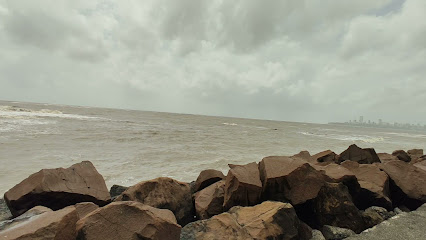
Essential places to dine
Colaba SOCIAL
Experience Mumbai's vibrant culinary scene at Colaba SOCIAL - where great food meets an electric atmosphere.
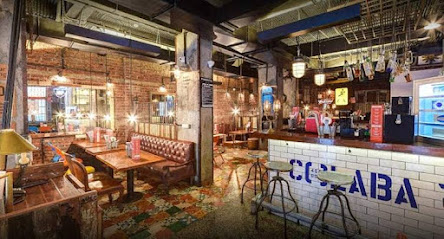
Bagdadi Restaurant
Discover authentic Mughlai flavors at Bagdadi Restaurant in Colaba - where every meal is a celebration of Indian cuisine.
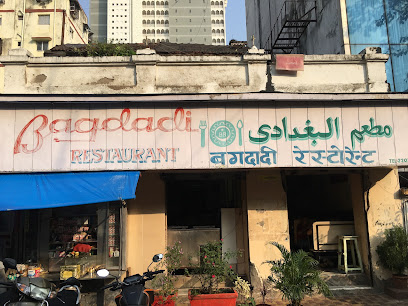
Koyla - Ethnic Cuisine
Experience modern Indian dining at Koyla in Colaba - where tradition meets innovation in every bite.
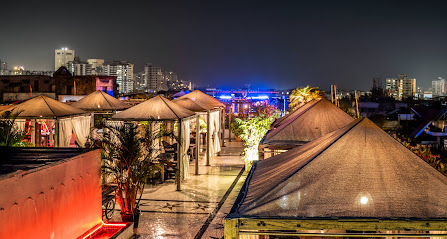
Bay view Cafe
Discover stunning views and delightful cuisine at Bay View Cafe in Colaba - where every meal is an experience to remember.
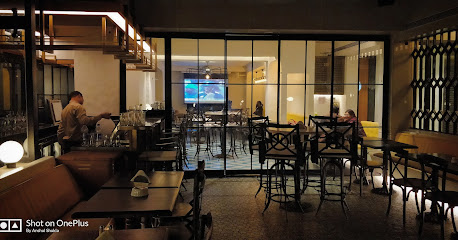
The Table
Experience culinary artistry at The Table in Colaba - where Italian elegance meets American comfort and French sophistication.
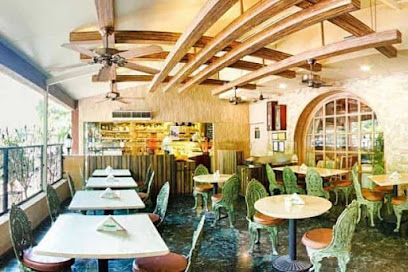
Cafe Churchill
Discover the culinary charm of Cafe Churchill in Colaba, Mumbai – where continental flavors meet inviting ambiance.
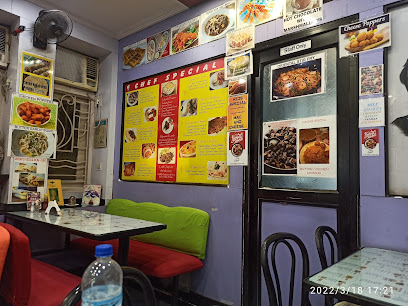
Rustico
Experience the best of Indian and Italian cuisine at Rustico in Mumbai's vibrant Kala Ghoda area.
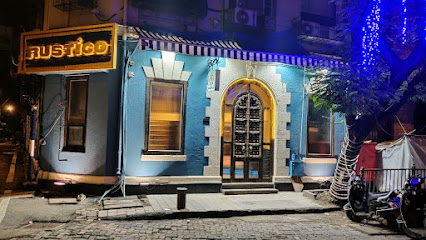
Cafe Basilico - Colaba
Discover the vibrant flavors of Mumbai at Café Basilico in Colaba – where culinary excellence meets inviting ambiance.
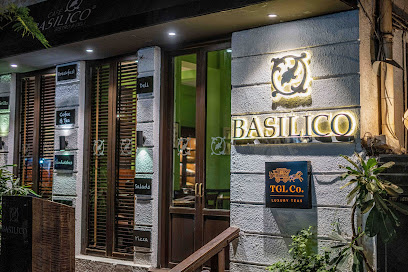
Bombay Brasserie Colaba
Discover modern Indian flavors in an elegant setting at Bombay Brasserie Colaba, where tradition meets innovation in every dish.
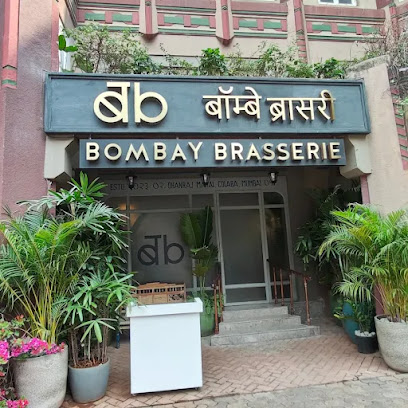
Smoke House Deli Colaba
Experience culinary excellence at Smoke House Deli Colaba - A must-visit destination for gourmet breakfast and European delights in Mumbai.
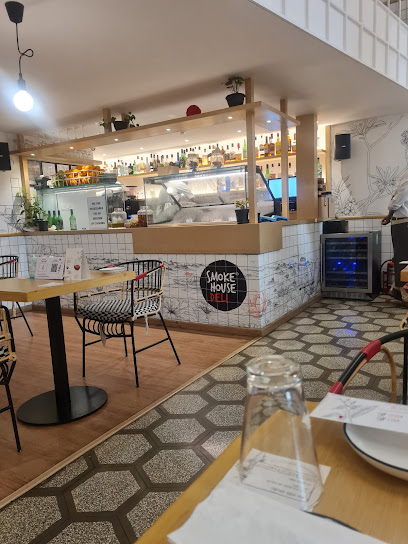
Markets, malls and hidden boutiques
Kalapi Cloth Store
Explore the vibrant textiles of India at Kalapi Cloth Store in Colaba, Mumbai - your gateway to authentic Indian fashion and craftsmanship.
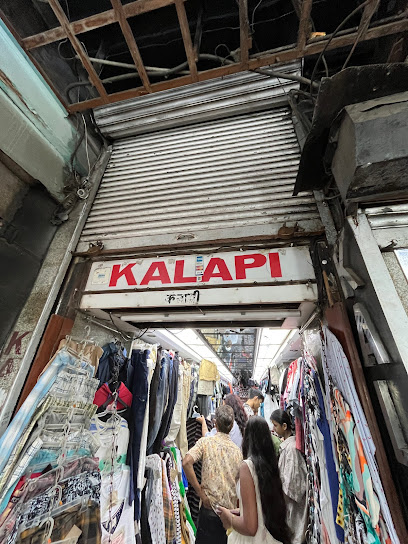
Good Earth
Discover the essence of Indian craftsmanship at Good Earth, a premier gift shop in Mumbai offering unique clothing and home goods.
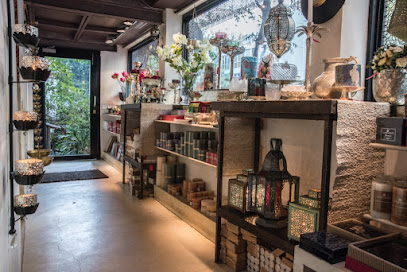
Le Mill
Discover the elegance of contemporary fashion at Le Mill, Mumbai’s premier clothing and accessories store, blending style and sophistication.
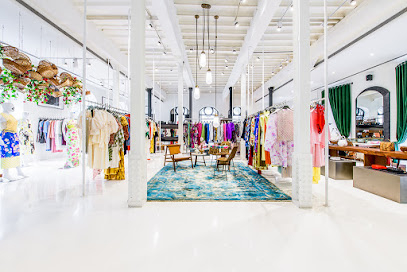
India Circus by Krsnaa Mehta
Explore the vibrant designs of India Circus by Krsnaa Mehta, where tradition meets modernity in home goods and souvenirs.
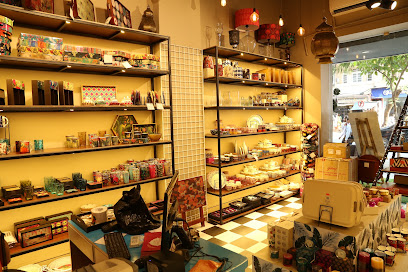
Twinkle Boutique
Discover exquisite fashion at Twinkle Boutique, nestled in the heart of Mumbai's vibrant Colaba Causeway, offering unique clothing and accessories for all styles.
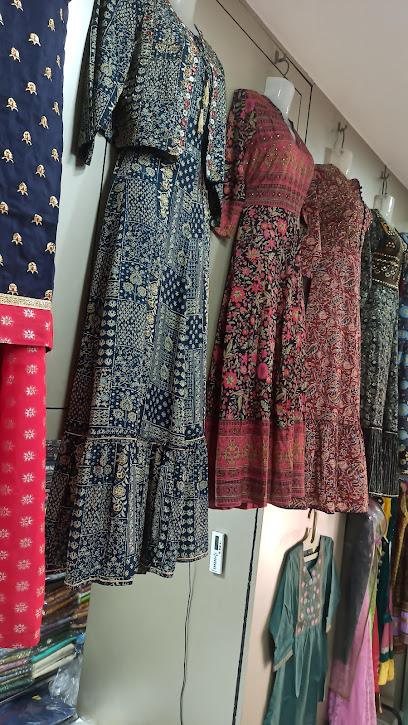
The Urban Shop
Explore The Urban Shop in Colaba, Mumbai for unique gifts and local crafts that embody the spirit of India.
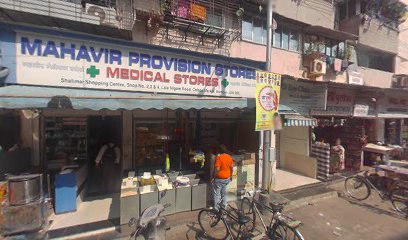
Grand Store
Discover unique fashion moments at Grand Store, the vibrant clothing destination in Colaba, Mumbai, blending style with local culture.

colaba market
Explore Colaba Market – A vibrant shopping haven in Mumbai filled with unique clothing, accessories, and local crafts.
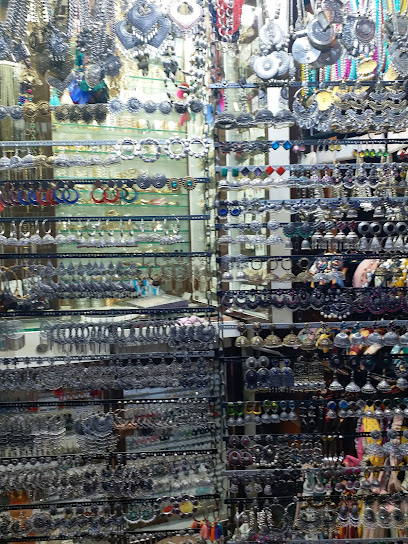
Kashmir Novelties
Discover the essence of India's craftsmanship at Kashmir Novelties, your go-to destination for unique gifts and traditional handicrafts in Colaba.
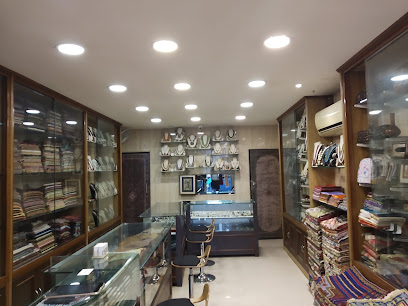
The Galaxy shop
Explore unique fashion finds at The Galaxy Shop in Navy Nagar, Mumbai, where local charm meets modern style.

Essential bars & hidden hideouts
Colaba SOCIAL
Experience the pulse of Mumbai at Colaba SOCIAL, where food, drinks, and creativity come together in a vibrant setting.
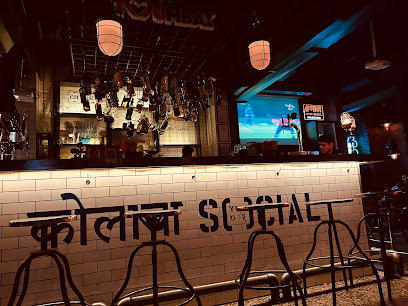
Gokul Bite
Experience the vibrant flavors of authentic Indian cuisine at Gokul Bite in Colaba, Mumbai.
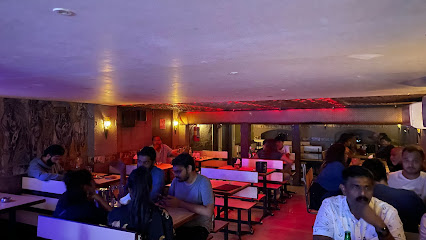
Cafe Mondegar
Experience the vibrant atmosphere of Cafe Mondegar in Colaba, where delicious food meets lively music and artistic charm.
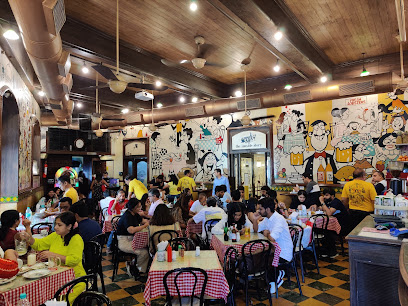
Woodside Inn
Discover the vibrant flavors of Mumbai at Woodside Inn, a top gastropub in Colaba offering a fusion of local and international cuisine.
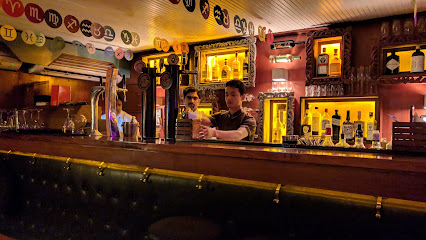
Effingut - Colaba
Experience the vibrant atmosphere and delicious craft beers at Effingut, Colaba's top brewery and brewpub, perfect for tourists seeking a taste of Mumbai's nightlife.
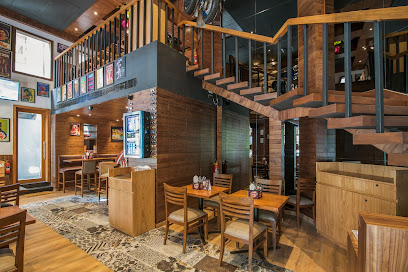
Hammer & Song
Discover the vibrant atmosphere of Hammer & Song, Mumbai's premier gastropub, where gourmet cuisine meets artisan cocktails in a lively setting.
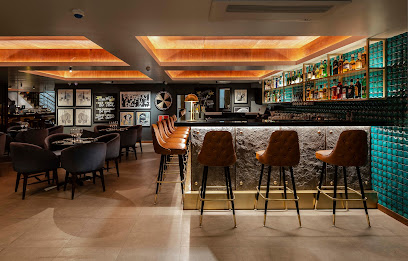
Wink
Experience the vibrant nightlife at Wink Bar, a stylish bar in Mumbai offering exquisite drinks and a lively atmosphere.
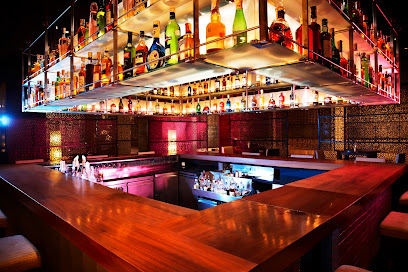
Harbour Bar
Experience the elegance of Harbour Bar at the Taj Mahal Palace Hotel, where stunning views and exquisite cocktails await in Mumbai's vibrant heart.
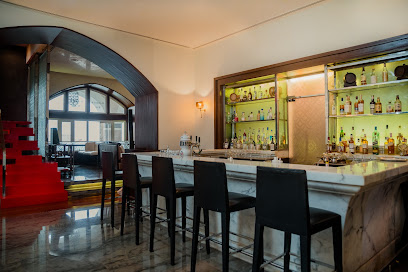
Vrandavan Restaurant and Bar
Experience the vibrant culinary scene at Vrandavan Restaurant and Bar, where delicious grill dishes meet a lively bar atmosphere in Colaba, Mumbai.
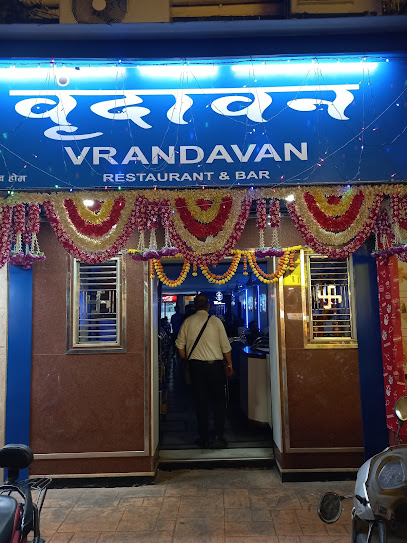
Starlit Cafe
Experience the cozy ambiance of Starlit Cafe in Colaba, where delightful drinks and light bites create the perfect retreat in Mumbai.
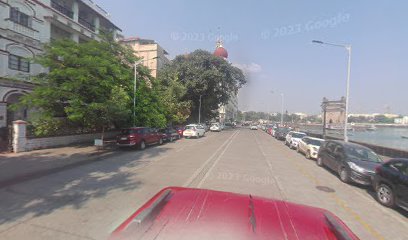
Local Phrases
-
- Helloनमस्ते
[namaste] - Goodbyeअलविदा
[alvida] - Yesहां
[haan] - Noनहीं
[nahi] - Please/You're welcomeकृपया
[krupaya] - Thank youधन्यवाद
[dhanyavad] - Excuse me/Sorryक्षमा करें
[kshama karein] - How are you?आप कैसे हैं?
[aap kaise hain?] - Fine. And you?ठीक हूँ। और तुम?
[thik hoon. aur tum?] - Do you speak English?क्या आप अंग्रेज़ी बोलते हैं?
[kya aap angrezi bolte hain?] - I don't understandमुझे समझ में नहीं आया
[mujhe samajh mein nahi aaya]
- Helloनमस्ते
-
- I'd like to see the menu, pleaseकृपया मेन्यू दिखाइए
[krupaya menu dikhaiye] - I don't eat meatमैं मांस नहीं खाता
[main maans nahi khaata] - Cheers!चियर्स!
[cheers!] - I would like to pay, pleaseकृपया मैं भुगतान करना चाहुं
[krupaya main bhugtan karna chahoon]
- I'd like to see the menu, pleaseकृपया मेन्यू दिखाइए
-
- Help!मदद!
[madad!] - Go away!चले जाओ!
[chale jao!] - Call the Police!पुलिस को कहो!
[police ko kaho!] - Call a doctor!डॉक्टर को बुलाओ!
[doctor ko bulao!] - I'm lostमैं खो गया/गई हूँ
[main kho gaya/gayi hoon] - I'm illमुझे बीमारी है
[mujhe bimari hai]
- Help!मदद!
-
- I'd like to buy...मैं ... खरीदना चाहूँगा/चाहूँगी
[main ... kharidna chahunga/chahoongi] - I'm just lookingमैं सिर्फ देख रहा/रही हूँ
[main sirf dekh raha/rahi hoon] - How much is it?यह कितने का है?
[yah kitne ka hai?] - That's too expensiveयह बहुत महंगा है
[yah bahut mehnga hai] - Can you lower the price?क्या आप कीमत कम कर सकते हैं?
[kya aap keemat kam kar sakte hain?]
- I'd like to buy...मैं ... खरीदना चाहूँगा/चाहूँगी
-
- What time is it?अभी कितने बजे हैं?
[abhi kitne baje hain?] - It's one o'clockएक बजे हैं
[ek baje hain] - Half past (10)दस बजे तक
[das baje tak] - Morningसुबह
[subah] - Afternoonदोपहर
[dopahar] - Eveningशाम
[shaam] - Yesterdayकल
[kal] - Todayआज
[aaj] - Tomorrowकल
[kal] - 1एक
[ek] - 2दो
[do] - 3तीन
[teen] - 4चार
[chaar] - 5पांच
[paanch] - 6छह
[chhah] - 7सात
[saat] - 8आठ
[aath] - 9नौ
[nau] - 10दस
[das]
- What time is it?अभी कितने बजे हैं?
-
- Where's a/the...?... कहाँ है?
[... kahan hai?] - What's the address?पता क्या है?
[pata kya hai?] - Can you show me (on the map)?क्या आप मुझे दिखा सकते हैं?
[kya aap mujhe dikha sakte hain?] - When's the next (bus)?अगली (बस) कब है?
[agli (bus) kab hai?] - A ticket (to ....)एक टिकट (को ...)
[ek ticket (ko ...)]
- Where's a/the...?... कहाँ है?
History of Colaba
-
Colaba, originally an island, was part of the ancient trading routes that connected the Indian subcontinent with the Arabian Sea. Historical records indicate that it served as a crucial point for maritime trade, facilitating exchanges between various cultures and communities long before the arrival of European colonial powers.
-
In the 18th century, Colaba became a focal point for the British East India Company, which recognized its strategic importance. The British extensively developed the area, leading to the construction of significant structures such as the Colaba Causeway and the iconic Gateway of India, which was built to commemorate the visit of King George V in 1911.
-
Throughout the 19th and 20th centuries, Colaba evolved into a cultural melting pot, attracting diverse communities including Parsis, Jews, and Anglo-Indians. This blend of cultures is reflected in the architecture, local cuisine, and vibrant arts scene, making Colaba a vibrant neighborhood within Mumbai.
-
Colaba played a significant role in the early days of Indian cinema. The first Indian feature film, 'Raja Harishchandra,' directed by Dadasaheb Phalke, premiered in 1913. The neighborhood continued to host numerous film studios and theaters, contributing to the growth of Bollywood and the entertainment industry in Mumbai.
-
After India gained independence in 1947, Colaba underwent substantial changes as it adapted to the new socio-political landscape. The area became known for its artistic communities and intellectual gatherings, with institutions like the Jehangir Art Gallery and the National Gallery of Modern Art promoting contemporary art and culture.
Colaba Essentials
-
Colaba is easily accessible from various parts of Mumbai. If you are coming from the Chhatrapati Shivaji Maharaj Terminus (CST), you can take a local train to Churchgate Station and then a short taxi or auto-rickshaw ride to Colaba. From the domestic airport, taxis and rideshare services like Uber and Ola are available, taking approximately 30-45 minutes depending on traffic. Buses also connect Colaba to different neighborhoods, with the BEST bus service being a reliable option.
-
Colaba is a compact area, making it ideal for walking. Most attractions, including the Gateway of India and Colaba Causeway, are within walking distance of each other. For longer distances, local taxis and auto-rickshaws are readily available. The Mumbai local train system is not directly accessible in Colaba, but you can reach nearby stations like Churchgate or CST for broader travel. Bicycles can be rented from local vendors for a more adventurous exploration.
-
Colaba is generally safe for tourists during the day, but like any urban setting, caution is advised. Avoid isolated areas after dark and be vigilant in crowded markets to protect your belongings. While Colaba is not known for high crime rates, areas such as parts of Marine Drive and surrounding alleyways can attract petty theft. Always stay aware of your surroundings and keep your valuables secure.
-
In case of an emergency, dial 100 for police assistance or 101 for fire services. For medical emergencies, call 102 for an ambulance. The nearest hospitals are located in nearby neighborhoods, and pharmacies are available throughout Colaba. Ensure you have travel insurance that covers emergency medical situations. It’s also wise to keep a list of local emergency contacts handy.
-
Fashion: Do wear light and breathable clothing due to the tropical climate, but avoid overly revealing outfits, especially when visiting religious sites. Religion: Do show respect at religious sites by removing your shoes and dressing modestly. Public Transport: Do offer your seat to elderly passengers; don’t engage in loud conversations. Greetings: Do greet with 'Namaste' and a slight bow; don’t use first names unless invited. Eating & Drinking: Do try local street food and carry bottled water; don’t eat or drink in public transport.
-
To experience Colaba like a local, visit the bustling Colaba Causeway market for unique finds and local handicrafts. Engage with street vendors and try their specialties, like vada pav or bhel puri. Join locals at Café Leopold or Café Mondegar for a taste of Mumbai’s café culture. Early morning walks along the waterfront offer a serene view of the Gateway of India, away from the crowds. Attending local festivals can also provide a deeper cultural insight.
-
The currency in India is the Indian Rupee (INR). Credit and debit cards are widely accepted in many establishments, but it’s advisable to carry cash for street vendors and smaller shops. ATMs are available throughout Colaba, but ensure you have enough cash for market shopping. Be aware that some places may charge extra for card transactions, so check before paying.
-
Mumbai is a melting pot of cultures, but some customs are unique. Always remove your shoes when entering homes or temples. It is respectful to eat with your right hand, and when dining out, wait for the host to start the meal. Avoid discussing sensitive topics like religion or politics with locals unless you know them well. Smile and be polite, as friendliness is appreciated.
Nearby Cities to Colaba
-
Things To Do in Pune
-
Things To Do in Nashik
-
Things To Do in Aurangabad
-
Things To Do in Vadodara
-
Things To Do in Panaji
-
Things To Do in Goa
-
Things To Do in Rajkot
-
Things To Do in Ahmedabad
-
Things To Do in Udaipur
-
Things To Do in Bhopal
-
Things To Do in Nagpur
-
Things To Do in Jodhpur
-
Things To Do in Bengaluru
-
Things To Do in Mysore
-
Things To Do in Hyderabad











